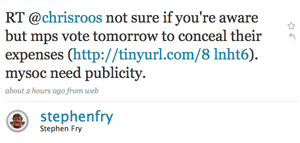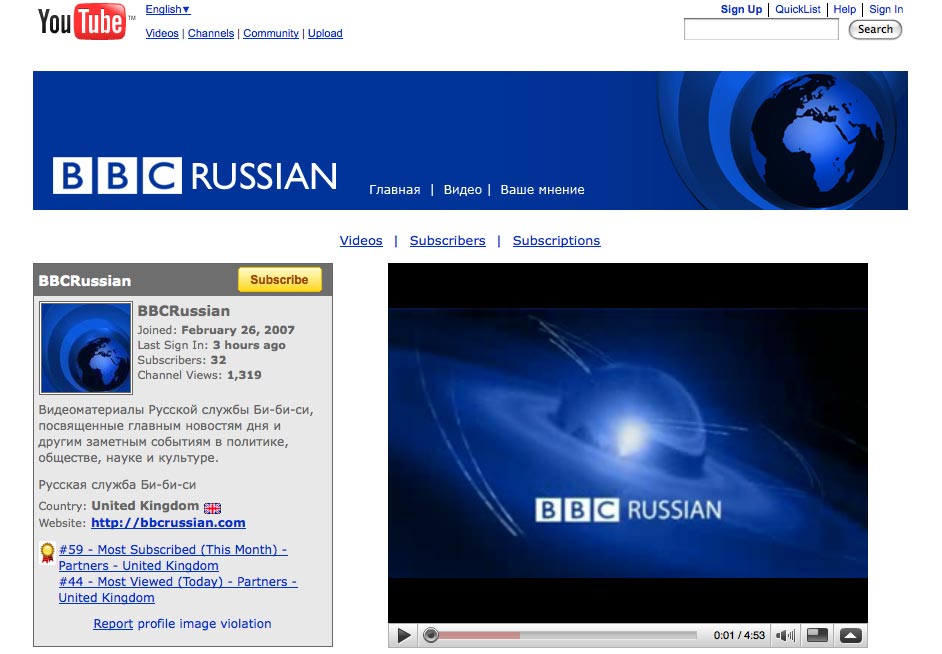It’s an interesting landmark: a quickly put-together online campaign in the UK may have influenced a political reversal. Gordon Brown has cancelled proposals for MPs to protect the details of their expenses.
The House of Commons leader, Harriet Harman, cited lack of cross-party support as the reason behind the change, according to the BBC report.
Meanwhile, the Guardian reported:
“The decision is a major victory for freedom of information campaigners and follows growing opposition led by the Liberal Democrats to the proposal, and website campaigns urging the public to email their MP objecting to the move.”
Does this show something of a sea change in political influence? Note that the campaigners directly mobilised their supporters, without reliance on mainstream media.
Tom Steinberg, founder of My Society, the organisation behind the campaign, thinks traditional media manipulation tools had little effect.
He comments on the MySociety blog:
“This is a huge victory not just for transparency, it’s a bellweather for a change in the way politics works. There’s no such thing as a good day to bury bad news any more, the internet has seen to that.”
Matthew Cain, over on his BacAtU blog, gives five reasons why he believes the campaign had clout, and points out that Stephen Fry helped the cause too… with a humble re-tweet on Twitter:

But, also today, a reminder of the way media connections have traditionally worked, with the appointment of a new head of political lobby, the Financial Times’ Jean Eaglesham. But how much influence and inside knowledge does the lobby have anymore?
“Eaglesham dismissed any suggestion that the need for constant ‘rolling’ news has diminished the quality of parliamentary reporting.
“She said: ‘Clearly it’s a risk we’re all aware of, however, now we also have the added value of more analysis and breaking news through blogging and other online content. Things change so fast now, it’s fascinating.'”
The role of the lobby was discussed at the end of last year in the House of Lords. Hazel Blears talked about the influence of the political bloggers in November, in an address to the Hansard Society.
 The BBC has made good on its October promise to launch
The BBC has made good on its October promise to launch